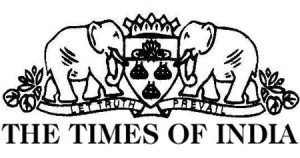[Breaking] Review petition filed against Supreme Court’s Constitution Bench Aadhaar judgment
In a major development, a review petition against the Supreme Court of India’s Aadhaar judgment delivered on September 26, 2018 — in the matter of Justice K.S. Puttaswamy (Retd.) v. Union of India & Others — has been filed in the apex court today, December 24, 2018. The review petition has been filed in the Supreme Court against the judgment of the Constitution bench upholding constitutional validity of Aadhaar.
Petitioner Imtiyaz Ali Palsaniya has contended that various grounds urged in applications filed weren’t considered by court and it has been filed via the office of Advocate-on-Record Pallavi Pratap and drafted by Supreme Court lawyer Nipun Saxena.
Breaking: Review petition has been filed in the Supreme Court against the judgment of the Constitution bench upholding constitutional validity of Aadhaar. Petitioner Imtiyaz Ali Palsaniya has contended that various grounds urged in applications filed weren't considered by court. pic.twitter.com/23GE3QIB64
— The Leaflet (@TheLeaflet_in) December 24, 2018
The review petition has been filed under Article 137 of the Constitution of India read with Order XLVII RULE 2 of the Supreme Court Rules 2013, read with Order XLVII Rule 1 of the Code of Civil Procedure, 1908 seeking a review of the order dated September 26, 2018 passed by a Constitution Bench of Supreme Court, when the Court upheld the constitutional validity of the Aadhaar programme as well as the Aadhaar (Targeted Delivery of Benefits, Subsidies and Services) Act, 2016 sans a few provisions which were either held to be constitutionally invalid or were read down.
Petitioner has challenged the controversial 139AA making PAN Aadhaar mandatory. Aadhaar slipping into the hands of private BSP companies much before the Aadhaar Act 2016 was enacted and that Aadhaar has destroyed the distinction between citizens and residents.
— The Leaflet (@TheLeaflet_in) December 24, 2018
The petition has provided eight grounds on which it has claimed that the the Aadhaar judgment of the Constitution Bench be reviewed, which read as follows:
A. The error apparent on the face of the record is that the judgment sought to be reviewed has not considered an express provision in the Aadhaar Act, 2016 itself which is Section 2(k) which specifically prohibits any person from parting with any information which is pertaining to one’s “income”. This Hon’ble Court has failed to consider, much less analyse the purport and scope of this provision which categorically states that the demographic information shall not include information pertaining to one’s income statement. Despite a clear legislative mandate to the contrary, Section 139AA of the Income Tax Act, 1961 made it compulsory to ensure that PAN Card is linked with one’s Aadhaar details. The Proviso to Section 139AA(2) further states that in case a person fails to intimate Aadhaar number, the PAN of the person shall be deemed to be invalid, and this failure to link will result into a situation wherein the person will be treated as if he had never applied for a PAN Card.
B. It is submitted that a specific legislative embargo engrafted in Section 2(k) of the Aadhaar Act, 2016 was never considered by this Hon’ble Court whist passing the judgment sought to be reviewed. Nor does this provision was discussed in the case of Binoy Viswam v. Union of India (2017) 7 SCC 59. In fact, the judgment in Binoy Viswam (supra) began on a demurrer that the Proviso to Section 139AA(2) shall remain stayed until the larger issue of Right to Privacy is decided by the Constitution Bench (vide paragraph 90 and paragraph 128(v) passed in Binoy Viswam (Supra)). Both these judgments have failed to account that when there is an express prohibition in the plain language of the statute itself, then it must be given effect to, and on this ground alone, Section 139AA of the Income Tax Act, 1961 ought to have been struck down. The judgment under review has not considered this vital aspect, nor has it clarified on the fate of this Proviso, once the same was stayed by way of an earlier pronouncement in Binoy Viswam (Supra).
C. The judgment sought to be reviewed has also not considered a crucial aspect of PAN – Aadhaar Linkage, since it fails to satisfy the test laid down by the same Court in the very same judgment. The test laid down was that the thing for which Aadhaar sought by the State had to necessarily fall within the meaning of either a “benefit”, “subsidy” or “Service”. Thus, anything for which Aadhaar had to be required, had to first pass the muster of qualifying within the meaning of a “benefit” “subsidy” or “Service”. Filing of Income Tax Returns under Section 139AA of the Income Tax Act, 1961 does not fall within either of the three descriptions, since filing of Income Tax is a statutory mandate, the violation of which could result in serious penalty. It is neither a benefit, subsidy or service. The judgment in Binoy Viswam as well as the present impugned judgment, which has drawn heavy reliance from the judgment cited above, have both failed to clarify as to how PAN – Aadhaar linkage falls within the description of “benefit” “subsidies” or “Service”. This is more so when the statute itself for the purposes of issuing Aadhaar Number, provides for three prerequisites: furnishing of unique identity number, furnishing of biometric information and furnishing of demographic information. It is submitted that “income” neither falls within the meaning of “biometric information” nor falls within the expression “demographic information” and in fact “income” is specifically excluded under the definition of demographic information. That being so, Section 139AA which incorporates the linking of Aadhaar Number is therefore itself in contravention of the Aadhaar Act, 2016
D. The Aadhaar Program, which had been in existence prior to the enactment of the Aadhaar Act, 2016 had itself become an instrument of transfer of sensitive personal data belonging to the citizens of this country into foreign entities which acted as Biometric Service Providers or BSP’s at a time when UIDAI in 2010 had no cyber or technical infrastructure to store the sensitive personal information. This information was already retained, collected, stored as well as processed by these BSP’s much before the Aadhaar Act, 2016 ever came into existence. This has resulted into a massive national security risk which is being posed to the nation, more so when as per the Press Information Bureau Notification, 100 Crore enrollments had already taken place before 04.04.2016. This clearly demonstrates that even before the Aadhaar Act, 2016 was passed, the data was already in the hands of Private players. No retrospective validity could be accorded to this systematic illegality which had been perpetrated from 2010 to 2016.
E. The judgment sought to be reviewed on the aspect of Biometric Service Providers states that it is only the source code of the software which is retained by the BSP’s and not the data stored on it which is even otherwise stored offline, thereby disabling any information from ever being passed into the hands of these private entities. However, what has not been taken into account is the date specified earlier, i.e. 04.04.2016, which is the date when the Press Information Bureau Release of the Ministry of Telecommunication reveals that as on this date 100 Crore enrolments had already been carried out even before a statutory regime was in place. Which is to say, at the time when Aadhaar Act, 2016 came into force, the sensitive data of 100 Crore citizens of this country was already in private hands and there was no law to protect the privacy of the individuals who were induced to part with their sensitive personal data. When Right to Privacy is already recognized as a Constitutional Right under Article 19 and 21 by a Constitution Bench of Nine Honourable Judges and when it has been specifically held that it is only the State or its instrumentality which can store collect or retain the data then the collection, retention or storage, processing of information in private hands not only goes against the Right to Privacy Judgment, but also against Section 29 of the Aadhaar Act, 2016 which in no uncertain terms prohibits the collection or creation of core biometric information. The information which is retained by private players will also fall foul of the interpretation accorded to Section 57 of the Aadhaar Act, 2016 which expressly precludes any information to be used, collected or stored in any manner by private entities or body corporates.
F. Recourse to Section 23(3) was taken by the UIDAI to give a retrospective validity to the contracts that pre- date the Aadhaar Act, 2016 itself. It is submitted that if these MoU’s are in sheer abrogation of the Right to Privacy, then none of the statutory protections as envisaged under the Aadhaar Act, 2016 could come to the rescue of UIDAI, since no statutory provision could cure a retrospective breach of a constitutional right.
G. The judgment prayed to be reviewed has not considered another consequential direction, which ought to have been issued pursuant to reading down of Section 57 of the Aadhaar Act, 2016. If private entities were prohibited from storing or collecting or otherwise using sensitive personal data, then a necessary sequitur would have to be a consequential direction for the deletion of every such Aadhaar data which already is in possession of the private companies, entities, schools, colleges, work places, banks, post offices, telecommunication service providers etc. The impugned judgment has not given any such direction to these various private players or corporate bodies to delete such a data. A consequence of this omission is that all these private players continue to retain the sensitive personal data of the citizens of this country.
H. The judgment prayed to be review has also not considered the crucial distinction between a “citizen” and a “Resident” since de hors any statutory protocol, enrollments had been carried out by UIDAI prior to the enactment of Aadhaar Act, 2016. Therefore, before 04.04.2016, which is only seven days after the Aadhaar Act, 2016 came to be enacted, 100 Crore “individuals” had already enrolled with the Aadhaar program. There is no way to identify the citizens from residents who are not citizens, as Aadhar has been the singular tool to dilute the said distinction. Needless to say, all the benefits, subsidies or services that are solely the Rights of the citizen, are being given away to residents who are not citizens. The impugned judgment only dismisses this pertinent claim by holding that this may arise in some probable future, and appropriate steps may be taken by UIDAI as and when the situation arises. However, there is clear and convincing evidence to suggest to the contrary that as on 26.03.2016, 100 Crore individuals had already been enrolled into the Aadhaar Program and there is no way to ascertain how many of these individuals are citizens, and how many are residents.
Read the Review Petition.
The post [Breaking] Review petition filed against Supreme Court’s Constitution Bench Aadhaar judgment appeared first on TheLeaflet | An Imprint of Lawyers Collective.
Thank you for viewing this legal update on Lex Do It. For more legal news and updates do not forget to subscribe and share! Read Original Post





